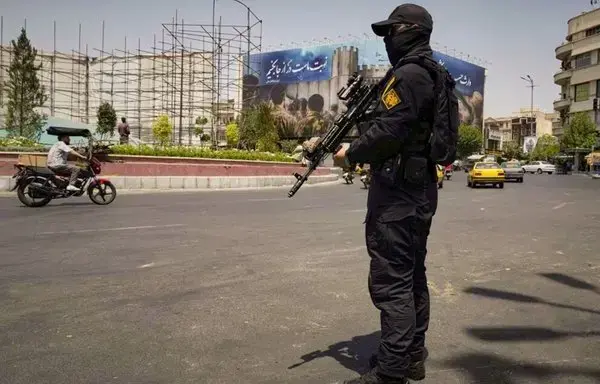Human Rights
Human Rights Organizations: Mass Arrests and Executions in Iran Following the Recent War with Israel
After the conflict with Israel, Iran saw a surge in the imprisonment and executions of activists and members of religious minorities.

By Al-Fassel |
The Iranian Regime has a lengthy history of committing human rights abuses that span over three decades.
The recent wave of arrests and executions is the latest in a series of these violations.
These recent events represent an opportunity for Tehran to suppress all dissent and spread a culture of terror among Iranians.
The Regime is striving to prove that it still holds the reins in Iran, and that the severe blows it has suffered will not change how it treats its people.
Harsh stance
Recently, Gholamhossein Mohseni, the Chief Justice of Iran, issued orders to the Prosecutor General and provincial prosecutors on June 15.
The orders stipulated to punish "elements who disturb the peace and security of the people" or "collaborate" with Israel.
He ordered that those persons be prosecuted, found guilty, and punished "very fast" and said that accelerated proceedings would "deter" people.
These actions are in response to what sources say was an unparalleled Israeli intelligence penetration of Iranian security forces.
Damage control
Amid internal criticism of Tehran's lack of air defenses and incapacity to repel US and Israeli attacks, human rights organizations accused Iranian authorities of using fear to stifle dissent and hide Iran's security shortcomings.
Amnesty International analyzed disturbing official statements indicating scores of arrests nationwide for alleged "espionage" or "operation" with Israel.
Other directives called for accelerated trials and executions.
Iranian authorities believe that several high-profile assassinations during the conflict were influenced by intelligence provided to Israel.
Iran claims that members of Israel's Mossad operating within the country are responsible for the deliberate assassinations of nuclear experts and senior commanders of the Islamic Revolutionary Guard Corps (IRGC).
Authorities have been pursuing anyone suspected of collaborating with foreign intelligence.
The IRGC-affiliated Fars News Agency claims that "the Israeli spy network has become very active inside the country."
Iranian intelligence and security services detained "more than 700 persons associated with this network" over 12 days, according to Fars.
Human rights organizations and activists have voiced concerns about the recent events.
They point to Iran's history of obtaining coerced confessions and holding biased trials. There are worries that there might be other executions without fair trials.
The spy must be executed. Why don't you shine a light on Gaza?
Thank you